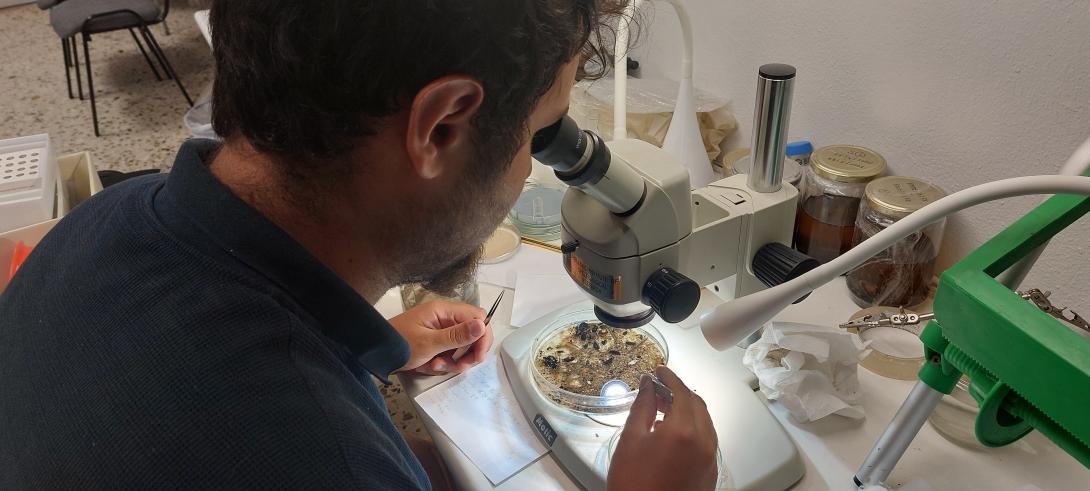Re-starting biodiversity monitoring for the Kavouropotamos stream in 2024
SpongeScapes partner WWF Greece re-launched biodiversity monitoring in the Kavouropotamos stream in spring 2024 to study the effect of traditional stone check dams on biodiversity. They are using three biotic indicators: ground invertebrates, amphibians, and crabs. Amphibians and crabs are identified in the field, while ground invertebrates are collected using pitfall traps and analysed in the laboratory by a group of experts. Biodiversity monitoring will continue throughout the project and the results will be compared with a previous monitoring carried out prior to the construction of the check dams.
The pre- and post- construction monitoring will allow WWF Greece to better assess the impact of the check dams on biodiversity and possibly on other parameters useful for water management in this arid region (infiltration, run-off, etc.).
Traditional check dams to improve sponge functioning in Mediterranean streams
The Kavouropotamos stream, located on the island of Paros in Greece, is an ephemeral watercourse in a region that has long been suffering from drought and habitat degradation. To address these problems, dry stone check dams were installed in June 2022. These small dams slow down the flow of water and encourage infiltration, increasing the stream’s capacity to support biodiversity. Built using traditional techniques, these check dams use local materials and blend in perfectly with the natural environment, providing additional habitat for local species.
For more information, visit the case study page.
